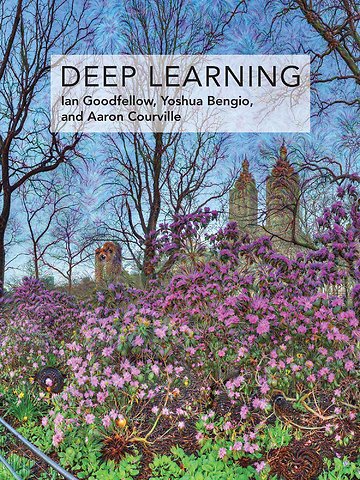Deep Learning
Gebonden Engels 2017 1e druk 9780262035613Samenvatting
"Written by three experts in the field, Deep Learning is the only comprehensive book on the subject." - Elon Musk, cochair of OpenAI
cofounder and CEO of Tesla and SpaceX
'Deep learning' is a form of machine learning that enables computers to learn from experience and understand the world in terms of a hierarchy of concepts. Because the computer gathers knowledge from experience, there is no need for a human computer operator to formally specify all the knowledge that the computer needs. The hierarchy of concepts allows the computer to learn complicated concepts by building them out of simpler ones; a graph of these hierarchies would be many layers deep.
This book introduces a broad range of topics in deep learning. The text offers mathematical and conceptual background, covering relevant concepts in linear algebra, probability theory and information theory, numerical computation, and machine learning. It describes deep learning techniques used by practitioners in industry, including deep feedforward networks, regularization, optimization algorithms, convolutional networks, sequence modeling, and practical methodology; and it surveys such applications as natural language processing, speech recognition, computer vision, online recommendation systems, bioinformatics, and videogames.
Finally, the book offers research perspectives, covering such theoretical topics as linear factor models, autoencoders, representation learning, structured probabilistic models, Monte Carlo methods, the partition function, approximate inference, and deep generative models. Deep Learning can be used by undergraduate or graduate students planning careers in either industry or research, and by software engineers who want to begin using deep learning in their products or platforms. A website offers supplementary material for both readers and instructors.
Specificaties
Lezersrecensies
Over Yoshua Bengio
Over Aaron Courville
Inhoudsopgave
U kunt van deze inhoudsopgave een PDF downloaden
Acknowledgments
Notation
1. Introduction
I: Applied Math and Machine Learning Basics
2. Linear Algebra
3. Probability and Information Theory
4. Numerical Computation
5. Machine Learning Basics
II: Deep Networks: Modern Practices
6. Deep Feedforward Networks
7. Regularization for Deep Learning
8. Optimization for Training Deep Models
9. Convolutional Networks
10. Sequence Modeling: Recurrent and Recursive Nets
11. Practical Methodology
12. Applications
III: Deep Learning Research
13. Linear Factor Models
14. Autoencoders
15. Representation Learning
16. Structured Probabilistic Models for Deep Learning
17. Monte Carlo Methods
18. Confronting the Partition Function
19. Approximate Inference
20. Deep Generative Models
Bibliography
Index
Anderen die dit boek kochten, kochten ook
Rubrieken
- advisering
- algemeen management
- coaching en trainen
- communicatie en media
- economie
- financieel management
- inkoop en logistiek
- internet en social media
- it-management / ict
- juridisch
- leiderschap
- marketing
- mens en maatschappij
- non-profit
- ondernemen
- organisatiekunde
- personal finance
- personeelsmanagement
- persoonlijke effectiviteit
- projectmanagement
- psychologie
- reclame en verkoop
- strategisch management
- verandermanagement
- werk en loopbaan








